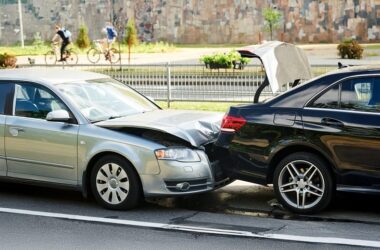India’s transportation infrastructure is changing, firms need to reconsider how they run their fleets. Choosing between an electric and a diesel commercial vehicle affects both the price and the rules. For companies that run commercial buses, this choice affects not only how much money they make, but also how well they can react to changes in the future.
Let’s look at the underlying costs that make electric buses different from diesel buses, not just the ones that are obvious.
-
Initial Cost
Electric vehicles cost more to buy, but they come with incentives. A typical electric bus may cost ₹30 to ₹40 lakh more than a similar diesel bus. This higher price is because the batteries and drivetrains are newer and more advanced. But government grants help close the gap. Incentives at the state level and central programs like FAME (Faster Adoption and Manufacturing of Electric Vehicles) lower the effective cost. There is also a difference in GST: 5% for electric and 28% for diesel.
So, even if the electric vehicle costs more up front, governmental support helps make up the difference. Over time, the extra cost can be made up for by savings on operations.
-
Energy Cost
Electric vehicles are always cheaper. Energy cost is where electric commercial vehicles have an edge. The cost of fuel for diesel buses is between ₹8 and ₹12 per kilometer. Electric buses, on the other hand, only cost ₹1.5–₹3 per kilometer to run. The difference in cost gets bigger as the scale gets bigger. For distances above 1 lakh kilometers, savings can be more than ₹10 lakh per vehicle.
The prices of electricity are also steady. The price of diesel goes up and down all the time. This makes it easier for managers of electric fleets to plan their budgets. Companies that drive a lot every day get the most out of this.
-
Maintenance: Fewer Parts, Lower Costs
Electric commercial vehicles have fewer parts that move than diesel commercial vehicles. Electric vehicles don’t have any oil, filters, gearboxes, or exhaust systems. This makes service intervals shorter and parts less likely to break.
On the other hand, diesel buses need their oil changed, their clutches fixed, and their engines checked on a regular basis. These parts wear out, especially when they have to carry a lot of weight or when they are in city traffic. Fleet owners generally say that EVs cost 30% to 50% less to maintain.
-
Charging vs Refueling: One Still Has the Upper Hand
Charging time is still a problem with EVs. It only takes a few minutes for a diesel bus to fill up. Without fast-chargers, an electric bus needs hours to charge. Depot pricing is a good option for routes that are easy to foresee, such school buses or staff travel. But for trips between cities, diesel commercial vehicles are still the best choice.
There are more public charging stations, however they don’t cover all areas equally. This makes it harder to use EVs outside of cities. Planning becomes very important.
-
Costs for the environment and following the rules: EVs win Clearly
Rules are getting stricter all over India. Many cities now limit or punish emissions from outdated diesel commercial vehicles. Pollution levies, green zones, and scrappage rules are becoming more widespread.
There are no similar rules for commercial EV vehicles. They don’t let out any exhaust gases. Companies that switch to electric vehicles (EVs) cut down on their carbon footprint and satisfy their corporate social responsibility (CSR) goals. This helps the brand’s image and keeps it from getting into trouble with the law.
-
Resale and Lifecycle: Diesel is still the best choice for now
The market for used diesel buses is well-established. Buyers know how to price things that have been used, lost value, and are for sale. Electric small buses don’t have as well-developed a second-hand market because they are newer. The health of the battery has a big effect on the resale price.
Even so, the industries that reuse and recycle batteries are increasing. Battery packs may eventually be able to give businesses some of their value back. But today, people still trust that they will get more money back when they sell their diesel commercial vehicles.
When Should a Company Go Electric?
Electric buses are best for businesses that run set, short-range routes. Urban logistics, staff transportation, and school bus drivers can all make sure that their charging routines are reliable. Lower operational costs and fewer breakdowns lead to more uptime.
Diesel buses are still superior for lengthy trips or places where charging stations are hard to find.
What would be the best case? A mix of electric and diesel vehicles: electric for short trips and diesel for extended trips.
In conclusion, the total cost is the truth
You can’t only look at the pricing of diesel and electric commercial trucks to decide which one to buy. Businesses need to think about the complete cost of ownership, from buying to selling.
Electric buses cost more up front, but they save a lot of money on fuel and service. They help with following the rules, being eco-friendly, and saving money in the long run. Diesel commercial vehicles may seem cheaper at first, but they have hidden expenses in fuel, upkeep, and rules.
For a lot of Indian companies, EVs are good for business and the environment, especially when routes and infrastructure match up. As technology gets better and networks get bigger, the balance may tilt even further in favor of electric.










